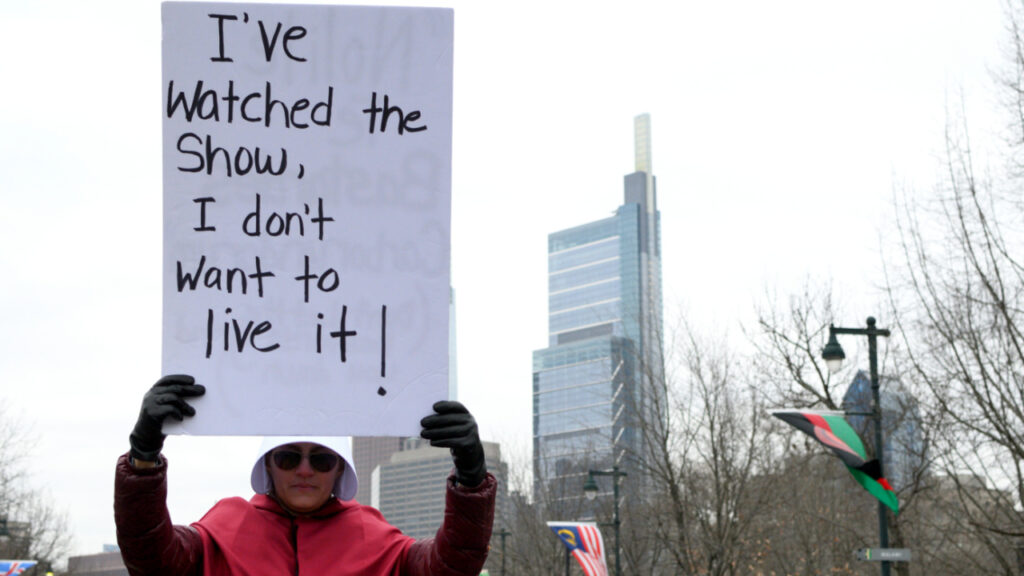
Why Saying ‘No’ Is a Radical Act of Liberation for Women of Color
Picture this: A crisis is brewing at work—whether it’s a dysfunctional team, a shaky diversity initiative, or a high-profile project on the verge of collapse—and the solution is to “Ask her to fix it. She always handles it.”
If you’re a woman of color, this likely sounds familiar. We’re often expected to step in, smooth things over, and save the day. Our resilience is celebrated, but what’s left unspoken is the toll this takes on us. The question I have for us is —but at what cost?
For many women of color, the workplace has taught us that saying “yes” is the key to success—proof that we’re team players and worthy of recognition. At first, the recognition felt good—great, even. But it wasn’t long before I realized this wasn’t a one-time ask. It became a pattern: when something went wrong, the expectation was clear that I’d swoop in and make it right. That recognition never translated into support, promotion, or meaningful investment in my career. Instead, I felt the weight of constant pressure and the slow creep of burnout.
But I’ve learned that my constant “yes” wasn’t ambition. It was survival.
For the last decade, I have navigated corporate spaces and run my Workplace Wellness and culture consulting firm, Perfeqta. Learning to say “no” was not only an act of self-preservation—it was liberation.
This shift reminded me of Tricia Hersey’s book, Rest Is Resistance: A Manifesto. In it, she writes, “Rest is a form of resistance because it disrupts and pushes back against capitalism and white supremacy.” For women of color, the act of resting—or even saying “no” to the demands that pull us away from rest—challenges a culture that thrives on our exhaustion.
When was the last time you said “no” to someone to say “yes” to yourself?
Why the Pressure to Over-Deliver Is Damaging
For women of color, the expectation of going above and beyond isn’t just about individual performance—it’s about systemic inequities that position us as the ones to fix what’s broken. We’re asked to lead diversity, equity, and inclusion efforts, manage interpersonal conflicts that have nothing to do with us and carry emotional labor for teams—often with little recognition and even less support.
This dynamic comes at a cost. The Black Women Thriving from Every Level Leadership report highlights how this pressure impacts us:
– 66% of Black women report not feeling emotionally safe at work.
– Only 39% feel they are properly rewarded for their contributions.
– 63% do not see clear pathways for advancement in their current organizations.
– A staggering 88% experience burnout often or always.
These numbers don’t exist in a vacuum. They reflect a system that undervalues the contributions of women of color while expecting us to give more. They reveal the hidden toll of workplaces that reward productivity but neglect well-being, creating a culture where saying “yes” feels like the only option.
The Societal Pressures That Keep Us Saying Yes
The pressure to say “yes” runs deep for many of us. It’s framed as ambition, but it’s often rooted in survival. The belief that we have to work twice as hard to get half as much is instilled in us early, and it follows us into adulthood, where microaggressions pay inequities. A lack of sponsorship reinforces the idea that over-delivering is the only way to belong.
Societal narratives that celebrate women of color for their resilience while ignoring the cost of that resilience compound these pressures. We’re hailed as the ones who “save the workplace” or “fix DEI,” but what happens when we can’t? Or when we decide not to?
The stigma of saying “no” is especially heavy for women of color. Boundaries are seen as weakness, not strength, and assertiveness is labeled as defiance, not leadership. This double standard leaves us in a precarious position: overwork and risk burnout, or set boundaries and risk being overlooked.
The Breaking Point
My breaking point came when I realized my constant “yes” wasn’t sustainable. I was depleted, juggling too much, and losing sight of why I loved my work in the first place. Therapy helped me see the patterns I’d been repeating—the ways I had tied my worth to my ability to endure.
Through the support of my therapist and my close friends, I learned that my identity was so deeply intertwined with achievement that I had forgotten how to prioritize myself. That realization was sobering, but it was also liberating. It gave me the clarity to start saying “no.”
Saying “No” as a Radical Act of Empowerment
Saying “no” forces workplaces to confront their reliance on our overperformance. It challenges systems that lean on women of color to hold everything together without offering the resources, recognition, or support we need to thrive.
This shift isn’t just personal; it’s collective. Whenever a woman of color asserts her boundaries, she creates space for others to do the same. She sends the message that our well-being matters just as much as our contributions.
The Systemic Barriers That Need to Change
Of course, the responsibility shouldn’t fall solely on us to set boundaries. Workplaces must also address the systemic barriers that make it so hard for women of color to say “no” in the first place:
– Reward Overwork: Companies often reward those who appear most dedicated, but they rarely account for the invisible labor that women of color perform.
– Lack of Support: Mentorship and sponsorship opportunities are critical, yet they’re often inaccessible to women of color.
– Cultural Blind Spots: Microaggressions and bias create environments where women of color feel they must overcompensate to prove their worth.
Without structural change, the cycle of overwork and burnout will persist, no matter how many of us learn to say “no.”
Empowering Women of Color to Say “No”
Breaking this cycle starts with us reclaiming our power. Here’s how we can begin:
1. Reflect on Your Patterns: Ask yourself why you feel compelled to say “yes.” Are you trying to prove something? Avoid something? Recognizing these patterns is the first step toward changing them.
2. Practice Small No’s: Start with smaller requests to build your confidence. You don’t have to justify your boundaries. A simple “I don’t have the capacity right now” is enough.
3. Find Your Community: Surround yourself with people who affirm your boundaries and encourage you to prioritize your well-being.
4. Advocate for Change: Push for workplace policies that prioritize equity, mental health, and sustainable workloads.
In the End, It’s All About Redefining Success
Some might argue that women of color can’t afford to say “no;” that our success depends on always going above and beyond. But I would argue the opposite. Saying “no” is an act of empowerment. It’s a commitment to ourselves, our health, and our future.
It’s a reminder that my value doesn’t lie in how much I can endure but in who I am. Women of color deserve workplaces that celebrate our contributions without demanding our well-being as a price. And it starts with reclaiming our power—one “no” at a time.
Latesha Byrd is a visionary Leader, Advisor, Speaker, and Executive Coach dedicated to advancing workplace wellness, leadership development, and inclusive culture strategies. She is the Founder and CEO of Perfeqta, a boutique consulting firm that helps organizations build thriving cultures through intentional leadership and data-driven strategies. Latesha obtained an Organizational Mindfulness Certification from the Institute for Organizational Science and Mindfulness (IOSM) and currently pursuing her Trauma Coach Certification. Her insights have been featured in Forbes, WSJ, Essence, and The New York Times. Learn more from Latesha by subscribing to her WorkFlow newsletter and following her on socials.




